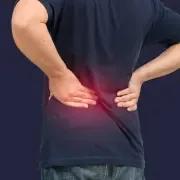13 Things to Know About Living with Rheumatoid Arthritis
In This Article
13 Things to Know About Living with Rheumatoid Arthritis
Pooja
Updated on August 14, 2024
Medically verified by Dr. Arya
Fact checked by Dr. Fazeela

Orthopaedics
10 minutes
Rheumatoid Arthritis (RA) is a chronic inflammatory disorder that not only affects the joints but can also have a wide-ranging impact on various aspects of life.
It is as such paramount for patients living with RA to have adequate knowledge in aspects to do with RA, its treatment and how best it can be managed.
In this blog, Karetrip is focusing on 13 things about RA and living with it.
1. Understanding Rheumatoid Arthritis
Rheumatoid Arthritis is an autoimmune disorder, this is the body’s immune system attacking its own tissues. Osteoarthritis is due to mechanical wear and tear but RA mainly affects the coating of the joints leading to swelling that may lead to deterioration of bones and joint malformation.
Some of these include joint carry pains, joint swellings, stiffness particularly in the morning or after a period of inactivity and both physical and mental fatigue.
2. Early Diagnosis is Crucial
It is therefore important to diagnose RA early and initiate the patient on the required treatment before the joints are badly affected. If you constantly feel pain and stiffness in any of the joints, it is advisable that you seek the service of a doctor quickly.
Early diagnosis in RA can be assessed using the blood test of RF and anti-CCP antibodies besides the imaging tests such as X-ray or MRI.
3. Causes and Risk Factors
The reason for RA is not clearly understood although research indicates that the condition may have both genetic and environmental triggers. It is also more prevalent in those who have a family history of the condition known as RA.
Some conditions such as smoking cigarettes, being exposed to asbestos, exposure to silica, and genetic susceptibility may also instigate RA. It is well established that women are more prone to RA than men and it becomes manifest between the age of 40 and 60 years.
4. The immune system and Background to RA
RA is any of the autoimmune diseases and these are diseases that are characterised by the immune system where it attacks the tissues of the body mistakenly.
This results in inflammation mainly affecting the joints, but other systems such as the skin, eyes, lungs, heart as well as blood vessels may be affected too.
Understanding the autoimmune nature of RA is key to understanding why treatment often involves medications that suppress the immune system.
5. Treatment Options
Medications
Several types of medications are used to treat RA, including:
- Nonsteroidal anti-inflammatory drugs (NSAIDs): These can provide pain relief and decrease inflammation, respectively.
- Steroids: Steroids for example prednisone help in decreasing inflammation, and pain and they also slow down joint destruction.
- Disease-modifying antirheumatic drugs (DMARDs): As these drugs can slow the progress of RA and prevent several joints and other tissues from getting destroyed.
- Biologic agents: These are comparatively newer categories of DMARDs that work their actions on specific components of the immune system.
Physical Therapy
As indicated from the above-discussed points of view, Physical therapy can be of significant advantage to the patients suffering from RA. Chemists can prescribe specific exercises to maintain joints movable, and they may discover fresh ways of carrying out routines to cut down pressure on your joints.
Surgical Options
In cases where medications and changing of lifestyle does not work for the patient then surgery is used to correct the joint problems. This includes synovectomy in which the lining of the joint is removed, repair of tendon and joint fusion. In serious cases—one may need Total Joint Arthroplasty or Total Joint Replacement.
6. Lifestyle Adjustments
Diet and Nutrition
There are foods that can lessen inflammation in the human body. Consuming fruits, vegetables, whole grains and omega-3 fatty acids such as those found in fish such as salmon and trout are helpful.
A certain group of RA sufferers may decide to avoid some foods as they may cause an increase in joint pain, for example, foods that are related to dairy products or gluten foods.
Exercise Routine
Physical activity is recommended for provision of flexibility of joints in the body and for general well being. The kind of exercises that are preferred are more of the exercises in water, walking or cycling among others.
Besides, flexibility and stress can also be managed with the help of yoga and tai chi.
Stress Management
Stress is known to worsen RA symptoms, and therefore practical methods of controlling stress play a very important role in the disease.
The practical ways of dealing with stress include use of practices such as meditation, deep breathing and observing the present moment.
Exercise and sleep are also essential in stress regulation, which require incorporation into each individual’s daily lives.
7. Managing Pain and Fatigue
Pain Relief Strategies
Pain management is a core aspect that is considered in the lives of persons diagnosed with RA. Narcotics, analgesics, creams, gels, and ointment can all be a part of pain management plans that the doctors may offer.
It was also advised that hot and cold therapies can also be helpful. Of course warmth will relax muscles and increase blood flow where cold will decrease swelling and dull severe pain.
 6 min read
6 min readTop Orthopaedic Hospitals In Bangalore For Bone And Joint Care
 10 min read
10 min readImpact of Untreated Back Problems
 10 min read
10 min readNon-Surgical Treatments for Back Pain
Get a Callback Now
Coping with Chronic Fatigue
Fatigue is one of the many symptoms associated with RA and if severe it can become crippling. Events should be complemented with inactivity. Proper sleep can be gotten by napping in the day but should not be too long as it messes up the night sleep.
Exercise can also lead to an increase in energy levels, and this is due to the fact that moderate exercise, in particular exercise that is taken on a regular basis, has been proven to have a positive impact in this aspect.
8. Emotional and Mental Health
Life with a chronic disease such as RA is challenging, and does impact the mental health of patients. Cognitive symptomologies and psychological disorders such as anxiety and depression are known to manifest themselves in RA patients.
There is the need of understanding the symptoms of mental disorders and when one needs to seek professional assistance. One should go to a psychiatrist or counsellor, attend support group sessions, and be involved in stress decreasing activities. CBT has been found to be especially helpful in the case of RA patients.
9. Building a Support System
RA patients depend on support from their family and friends and this improved support means so much in the management of the disease.
In this regard, patient-centred support can be extended by families and friends who may in one way or the other offer emotional support and practical assistance in performing daily routine and attending medical sessions.
Out of social media sites, support groups and online communities are essential forms of social relations.It is advised to turn to support groups either contact or online to have people who understand what one is going through.
Listening to others who have RA and discussing useful tips with them is also very reassuring.
10. Work and Daily Activities
Adjusting Work Environments
In general, it is advisable to minimise as much as you can anything that could be a problem for RA in your working place Environment.
These might encompass adjustable office chairs, tables, or the arrangements such as, working at home, flexible hours of working among others. Employers are often willing to make accommodations if they understand your needs.
Maintaining Productivity
Coordinating RA symptoms and time for giving treatments may be difficult when at work. Essentially, proper planning of the work schedule, priorities, adequate rest, and utilising assistive devices may ease the workload. Equal to the above is the need to communicate your needs to your employer.
11. Advances in RA Research
Latest Research Findings
Current investigations regarding RA are still being carried out due to this and new therapies are being discovered. It is good news that there are improvements in biologic medications for RA and the genetic and environmental aspects of the disease.
Regular reading of latest research can give a ray of hope and some ways to improve the living conditions of RA patients.
Future Treatment Possibilities
Researchers are in the process of developing new therapies that could be formulated to address the processes that lead to RA while preserving less harm and guaranteeing greater efficiency.
More auspicious fields of study for healthcare researchers include gene therapy and other forms of personal medicine.
12. Living Well with RA
Persons with RA can exercise and move frequently, although engaging in some type of physical activity is recommended for everyone. Real life examples of celebrities and ordinary people demonstrate that the illness does not have to dictate a patient’s life.
Looking at the lives of celebrities they can be the motivating and inspiring source for people.
Inspirational Figures with RA : Other celebs who have spoken or communicated about RA – include Kathleen Turner and Glenn Frey of RA – and this has gone quite a long way in helping other sufferers to feel encouraged about the condition.
What they achieved in terms of managing RA at the same time with their occupational lives can be inspiring.
13. Resources for RA Patients
Books, Websites, and Organisations
Today, there are a great deal of sources that can assist RA patients to learn more about the disease or get moral support.
There are other sites that offer great information on arthritis such as the Arthritis Foundation, Mayo Clinic, and the National Institute of Arthritis and Musculoskeletal and Skin Diseases (NIAMS).
Education sources can be obtained from books written by different authors including patients’ advice from experienced patients.
To be informed and empowered, people should always engage in some forms of media at least once in a day or update themselves once a day.
Education plays a major function in a person’s ability to manage RA. It is always recommended to practise visiting credible sites, reading through modern materials, and staying in touch with the healthcare practitioners.
You also have the chance to become a member of advocacy groups as well as fight for other RA patients by attending awareness events.
Life with Rheumatoid Arthritis is not easy but with correct intervention in medication, social services, and most of all knowledge, one can live a normal life.
The necessity of early detection, proper management that includes development of individual treatment regimes, and appropriate care in the case of children with ASD cannot be overestimated. Research still goes on, and this makes patients know that there is still hope for them and therefore should go for check ups.
Early Diagnosis is Crucial:Thus, the early diagnosis and management of RA have a beneficial long-term impact.
Comprehensive Treatment Plans: The treatment of RA involves the use of drugs, alteration of patient’s lifestyle and supportive measures. Importance of Support Systems: Support is regarded as necessary and important in managing the difficulties associated
Advances in Research:New and better treatments can also be highlighted with this ongoing research that is being conducted to improve the treatments for RA.
Empowerment through Knowledge: Being updated with what is happening with RA and engaging in the self-management of RA has a positive impact on the health condition of the patient
Source Links
Arthritis Foundation
Mayo Clinic
Hopkins Rheumatology

